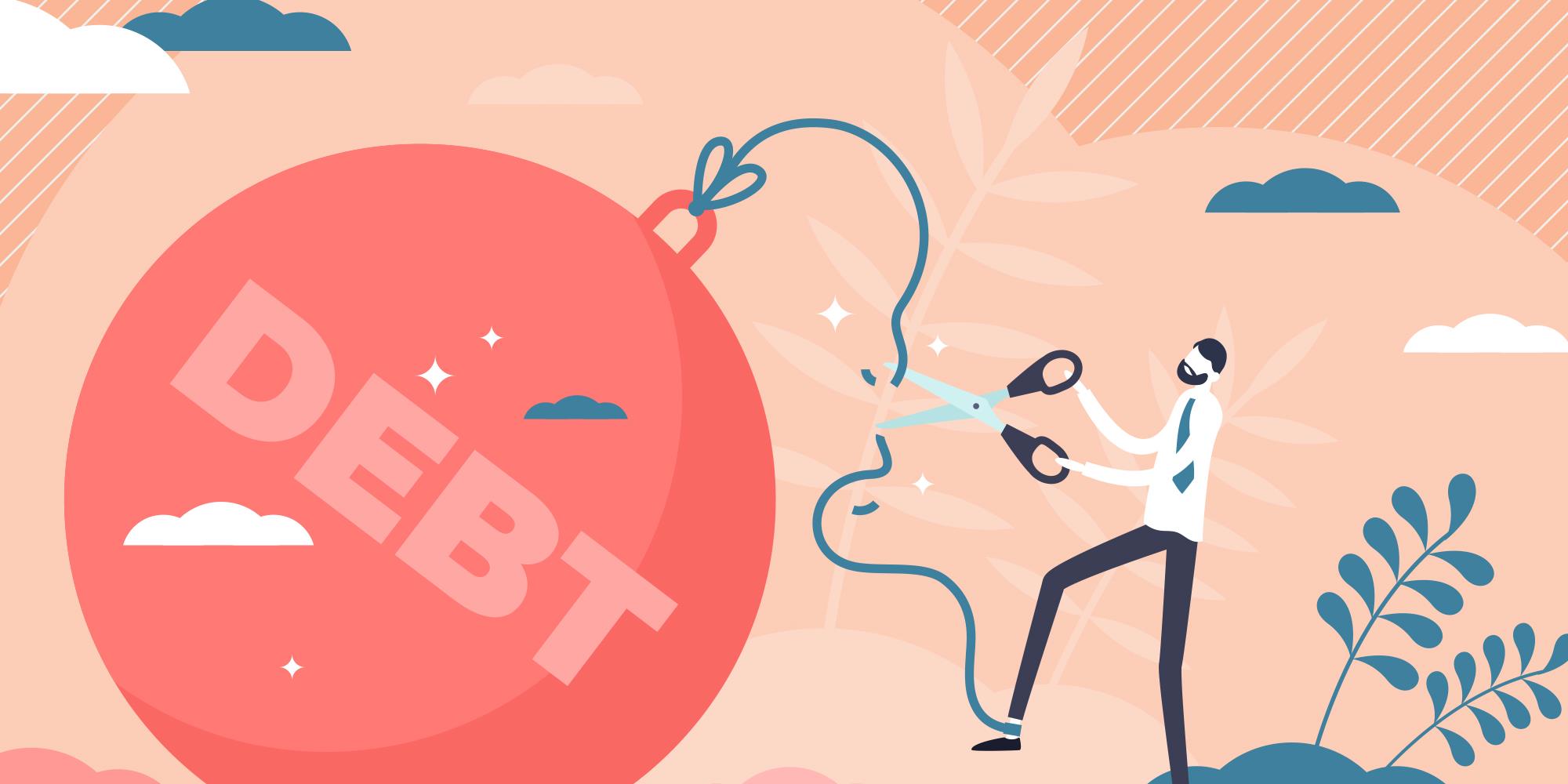
Managing Debt
Feeling overwhelmed by debt? You’re not alone... and you’re not stuck!
Debt can build up in many ways—credit cards, loans, unexpected expenses, or major life events. No matter how it happened, one thing's clear: dealing with debt often feels impossible.
But here’s the good news: you can take control of it.
You’re already on the right track by looking for help instead of ignoring the problem! That first step shows you're ready to take action and start building a plan.
Start with a Debt Assessment
To tackle your debt, you need a clear picture of your finances. That means looking at your total debt, income, spending habits, savings, credit score, and monthly bills. Whether you have extra money to work with or are living paycheck to paycheck, knowing your numbers is key to choosing the right strategy.
Use the tools and tips below to better understand where you're at and take your first steps toward becoming debt-free:
- The Savvy Money Checkup Tool gives you a comprehensive look at your financial health—including your current cash flow, debts, and credit report—and suggests customized debt payoff strategies, budgeting tips, and more based on the information you provide.
- Calculate Your Debt-to-Income Ratio via the Consumer Financial Protection Bureau.
- Round up all of your outstanding loan and credit card balance information (including remaining balances, interest rates, etc.) ahead of time to make crunching numbers easier when you’re ready to take your next steps. Typically, your most recent online or paper statements will have all this information included.

Consider Consolidating Your Debts
If you have multiple loans with varying rates, due dates, and balances, debt consolidation is a great option to consider for a few reasons. Rolling all your outstanding loans into one simply makes it easier to keep track of and make one payment each month. Plus, in many cases, a debt consolidation will result in a lower interest rate—which means you could end up with smaller monthly payment. And with a lower interest rate, you may even get on track to paying your debts off sooner.
Here’s more information on debt consolidation, how it works, and how it may benefit you. Also, check out our free online LoanSaver tool to see how much you could potentially save!
Look into Refinancing Options
If you have one major loan you’re tackling—like a mortgage, vehicle loan, or student loan—then refinancing may be an option to consider. Refinancing replaces your existing loan with a new one that has more favorable terms (the big one being a lower interest rate). Refinances are usually most beneficial when it comes to mortgages, vehicle loans, and student loans. Like debt consolidation, refinancing your existing debt could result in a lower monthly payment and/or the ability to pay it off sooner!
3Rivers has several options for refinancing. Learn more about:
Know that, depending on your situation, you may not be limited just a debt consolidation or just a refinance. Our team would be happy to help you determine which option would be most beneficial to you—or if you should consider both!
Decide on a Debt Payoff Strategy
While there are several methods out there related to paying off debt, most boil down, at their core, to two strategies:
- A Snowball Approach: Pay the minimum on all debts except the smallest—focus on paying that one off first. Then, roll that payment into the next smallest debt, and repeat. It builds momentum by knocking out smaller balances quickly, though it may cost more overall since larger debts wait longer.
- Tackling High-Interest Debt First: Focus on paying off debts with the highest interest rates first, since they cost you the most over time. It may feel slower at first, but it can save you more money in the long run.

Learn more about these strategies and how to put them into action here.
Do Your Research
As you start to look into your best options and make sense of some of the common terms related to debt—like debt collection, bankruptcy, debt relief services, and more—make sure you’re visiting trusted sources. Here are some of our favorites:
- Federal Trade Commission’s Getting Out of Debt Guide
- Consumer Financial Protection Bureau’s Debt Collection Resources
- Dealing with Debt Guide via USA.gov
- Debt Management Services via Bureau of the Fiscal Service
Work with a Professional
It’s important to note that there’s no cookie-cutter solution when it comes to paying off debt. Even if you owe the same exact amount as someone else, your current financial situation, interest rates, loan terms, and more may mean that certain options will be much more beneficial to you than to them, and vice-versa. In some cases, a combination of several options will have the biggest impact. We highly encourage you to reach out to a financial expert to help you develop your own unique debt management plan.
Not sure what your best option is for paying down your debts? We’d be happy to discuss your options and help you come up with a plan! Give us a call, stop into your nearest branch, or schedule an appointment today!